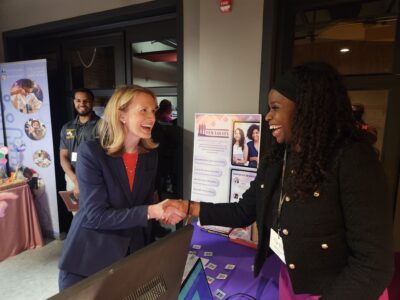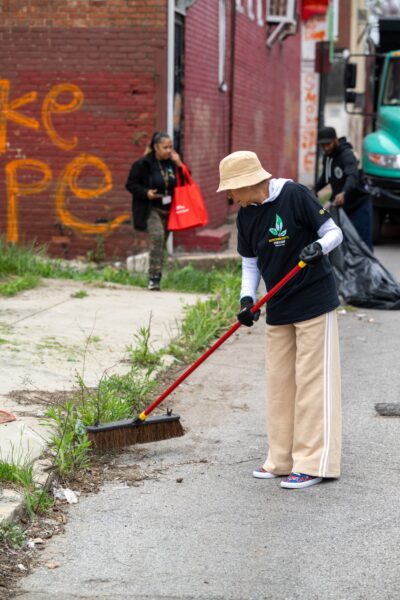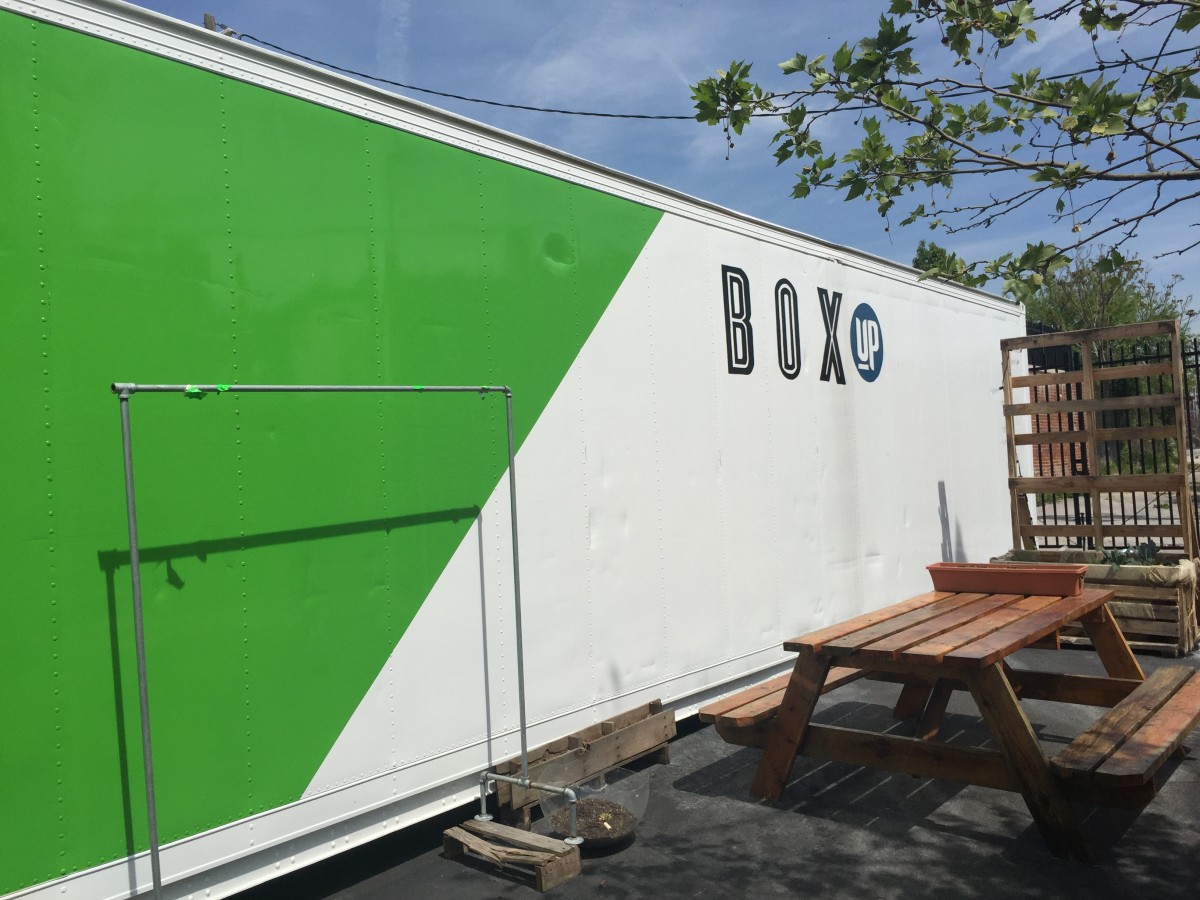Tucked behind the stately former brewery building that houses Humanim in East Baltimore, a shipping container is a new frontier in locally sourced food.
Inside, the entrepreneurs behind Urban Pastoral are growing microgreens like kale, butterhead and bibb lettuces to deliver to restaurants within the city. When the food incubator R. House opens in Remington later this year, the direct pathway will be on display at Stall 11. The microgreens will be featured in an all-vegetarian menu from chef Melanie Molinaro. Urban Pastoral is an owner of the eatery.
“We want to redefine what farm to fork means in this urban environment,” said Urban Pastoral’s J.J. Reidy.
That begins with the farmer, of course, so it’s worth getting a glimpse of the new tools. We are not talking about pitchforks here.
The shipping container is outfitted with Arduino-based systems that regulate necessary data points like pH, humidity and nitrates.

The farm is really a living dataset. (Photo by Stephen Babcock)
The temperature is set at 64 degrees, and it’s kept under control with the help of a “Cool Bot.”
If anything gets off, an app provides an alert. Blue and red LED lights are also selected for plant growth.

Not a nightclub. (Photo by Stephen Babcock)
Instead of soil, the plants grow in recycled food-grade plastic.
It has the same characteristics as soil, and Reidy said they could even introduce worms if they wanted.
Even though there aren’t fields, there’s still a harvest. The space is set up in zones that keeps the produce cycling. The controlled environment helps them plan ahead, said operations head Christian de Paco.

Readying the latest bounty. (Photo by Stephen Babcock)
Reidy said there has been a learning curve as they’ve gotten the operation producing tasty vegetables.
The relatively humid conditions required finding crops that would grow well in the environment, and they found cutting down on how much they initially planted actually increased the amount of usable food.

Kale growing vertically. (Photo by Stephen Babcock)
Touring the facility offers a glimpse at what’s possible, but in listening to Reidy it is immediately evident that the shipping container is a minimum viable product. Urban Pastoral is delivering food and has partnerships in the city, and the restaurant at R. House will be an extension that incorporates the end user (and their feedback, no doubt).
With its location in East Baltimore, the implication of the farm’s ability to address food deserts is clear, and the team also believes bringing food production into the city can be a source of jobs in the city. Getting to a point where they are nourishing entire communities will require scale.
“This is just our sneak peak of vertical farming and indoor growing in Baltimore city to show that if we want to feed the city, we need production that’s 100 times the size of this,” Reidy said. It’s something that farmers in other cities, consider this example in Philly, are also pursuing.
Join the conversation!
Find news, events, jobs and people who share your interests on Technical.ly's open community Slack

Baltimore daily roundup: Film fest spotlights cinema's immersive frontier; over $1M for a wellness startup; $2B to rebuild the Key Bridge

Baltimore daily roundup: Key takeaways on the local tech ecosystem; a video editor's path to working with Keke Palmer; BCIT's new podcast

Baltimore daily roundup: 20 people building Baltimore's innovation community; a local startup's $15K win; the USMC's new tech office


